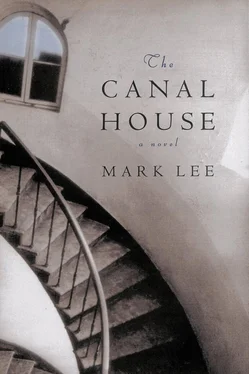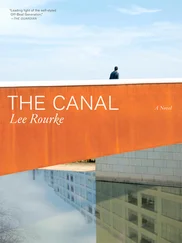Winston drove with one elbow on the window frame. He looked happy that he had two paying clients and that it was such a pleasant morning. “What is the nature of your article?” he asked. “Our country’s economy? The national parks? This terrible AIDS disease?” He guided the Benz around two long-horned African cows standing in the middle of the road. “Perhaps you might want to interview our country’s contestant in the Miss Universe Pageant. She’s quite pretty.”
“We want to interview Samuel Okello.”
Winston looked disappointed. “This is not possible, Mr. McFarland. Okello is a crazy man. He steals children and teaches them how to kill.”
Daniel opened up his notebook and studied his list of names. “Nicky and I will look for someone in Kampala who has contacts with the Lord’s Righteous Army. In the meantime, I’d like you to find a pilot that can fly us up to Kosana refugee camp. There has to be someone there who has met Samuel Okello and knows how to find him.”
Winston extended his right hand and touched the Virgin Mary’s plastic feet. “Miss Uganda is a much better story. She’s a princess from the kingdom of Toro, a Catholic, and virtuous—or so I’ve been told.”
“We’ll go to the Parliament building first, then we’ll talk to some aid workers who have been in Okello’s area.”
Kampala was built on a cluster of low hills and there was enough rainfall during the year to keep everything green. Bamboo grass and jacaranda trees grew everywhere and the vegetation softened the hard edges of the modern glass-and-concrete buildings. Thousands of people were out on Kampala Road that morning, heading to work or to the open-air market. Ugandans from a dozen different tribes mixed with the Nubians from the north and the Tutsis from the south. These days there was a separate tribe of those dying with AIDS. Both men and women had the same appearance, slender and frail, their clothes hanging on their bodies. They drifted down the sidewalk, often with a small child to help them along.
We left our bags with the desk clerk at the Speke Hotel, changed some money at a Forex bureau, then walked over to the Parliament offices. We talked to the Ugandan members of Parliament who came from the northern area that had been ravaged by the Lord’s Righteous Army. No one knew how to contact the guerrillas, but some of the office staff were related to the kidnapped children. Rummaging through their desks, they pulled out First Communion photographs of little girls in white dresses and black-and-white snapshots of boys wearing their school uniforms. If you see these children, let us know, they told us. We pray for them every day.
I asked for permission to take pictures, then moved my chair to an angle slightly out of the subjects’ sight line. I took my time and tried not to make a lot of noise. Sometimes I thought that I never actually saw anyone unless I was trying to get a photograph. Most people wear a public mask when talking to strangers, but then suddenly they lower their eyes or tighten their lips and their face changes and you see something real.
My ambition had placed me in this situation, but when I started taking pictures all that had to disappear. Successful photographers blend into the scenery. You try not to frighten dogs and babies. You instinctively know where the light source is while your eye searches for an image with something interesting at the center. Since you’ve spent your life watching other people do things, you can anticipate their movements. A good photograph is rarely the first thing you see in your viewfinder. It’s the moment that’s going to occur a few seconds later. As I watched, a Ugandan woman held up a photograph. I raised my camera when she kissed her forefinger, then squeezed the shutter when she touched the image of her lost daughter.
Late in the afternoon we ended up at a bar on Kampala Road that was run by the wife of an Italian aid worker. We sat outside at white plastic picnic tables and Daniel bought beer for the young reporters who wrote for the New Vision , the government newspaper. Most of them believed that Okello had moved north into Sudan. No one had seen the hostages for several months. It was rumored they were dead.
Winston’s Mercedes-Benz pulled up to the curb and he got out with a young white man and a Ugandan wearing a green ranger’s shirt. Daniel bought one more round for the journalists and I followed him over to another table.
Winston made the introductions like a diplomat. “Gentlemen, this is Paul Rosen of the World Wildlife Fund and Tobias Magazi from the National Parks Service. They’re flying up to Kidepo park and could possibly take you along.”
Everyone shook hands and Daniel ordered more beer. I found out later that Paul Rosen’s father owned 30 percent of a large corporation in the States. Instead of living off his trust fund, Paul had flown his airplane to Uganda and started an antipoaching task force with Tobias. The two friends were in their twenties, good looking and energetic, filled with plans to save the world.
“We need your help,” Paul said. “It would be great if we could get some coverage in the Washington Post .”
“I’m not in the helping business,” Daniel told him. “Neither is Nicky.”
“Of course. We understand.” Tobias leaned forward in his chair. “But this is a big story. People in America and Europe will be very interested.”
“The Sudanese army is crossing the border to kill elephants,” Paul said. “They’re using grenades and assault rifles.”
“This is happening in Kidepo park?” Daniel asked.
“They’re killing animals in the park and in the area around it. If you fly up there with us, you can see what’s going on. Nothing will change unless we get some coverage in the international press.”
“We came to Uganda to do a story about the Lord’s Righteous Army.”
“Forget about Okello,” Tobias said. “He’s either dead or up in the Sudan.”
“Maybe we need a backup article,” I told Daniel. “Editors like stories about large mammals.”
Daniel nodded. “If you can show us Sudanese soldiers crossing the border and killing elephants, then I’ll write an article about it. Take us up to the Kosana refugee camp and we’ll be in the area for a few days if something happens.”
Paul glanced at Tobias and smiled. They had been hunting for journalists and now they had captured two of them. “Sounds like a plan,” he said. “I’m flying there tomorrow to deliver a valve for their broken water pump.”
THERE’S A PROBLEM with young idealists—they wake up too damn early in the morning. Paul Rosen called my room at seven and announced that he was leaving from Entebbe in two hours. I pulled on my clothes and hurried downstairs to the dining room where I ordered the Speke Hotel’s famous banana breakfast: banana pancakes, banana bread with whipped banana butter, fried plantains, and little finger bananas soaked in rum. I was starting to turn yellow when Winston arrived with his car. Daniel had given him some money to buy canned food and crackers at the marketplace. We packed everything into our traveling bags and headed for the airport.
Paul’s Cessna 210 was parked on a side taxiway. While Daniel got out and talked to Tobias, I sat in the backseat and tried to digest my breakfast.
“Did you sleep well?” Winston asked.
“Fair enough.”
“The Lord’s Righteous Army is not a good story. It would be better if you both traveled west to the Toro.”
“I don’t want to meet Miss Universe, Winston. Maybe she’s beautiful and virtuous, but she won’t like me. I’m just the guy taking her picture.”
“Toro is my home. We could stay with my uncle, drink beer, walk around and see the gorillas. Things are quiet in the mountains, but very beautiful. The water is clean and clear, and we can go swimming without harm.”
Читать дальше












